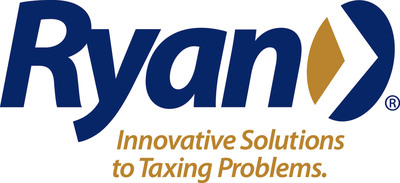
DALLAS, June 3, 2014 /PRNewswire/ -- With today's release of new regulations in the Federal Register via Treasury Decision 9666, and by cross reference REG-133495-13, the Internal Revenue Service (IRS) has opened the door for taxpayers to elect the Alternative Simplified Credit (ASC) calculation on amended returns. This new rule removes prior restrictions placed on taxpayers, which limited the election of the ASC calculation of the research and experimentation tax credit (commonly known as the "R&D tax credit") to timely filed returns.
Under prior regulations, on a timely filed return, taxpayers were provided the ability to evaluate both the regular and ASC calculation methodologies and elect the most beneficial calculation, whether from a taxpayer benefit standpoint or burden to substantiate standpoint. However, taxpayers were prohibited from electing the ASC calculation methodology on an amended return.
The ASC methodology provides that the credit for increasing research activities be calculated by comparing current year qualified expenses to that of the prior three tax years, whereas the regular calculation methodology requires the establishment of a historic "base" period, which in some cases involved substantiation of qualified expenses as far back as tax year 1984.
Each year numerous taxpayers either decline to claim the credit or do not claim the full credit that they are allowed due to this restriction. Specifically, as a result of the previous timely file requirement for the ASC election, many taxpayers were unable to claim a credit due to challenges in accurately quantifying and substantiating qualified activities under the regular credit calculation. Additionally, the requirement limited the time in which the taxpayers had to properly evaluate which calculation methodology would be most beneficial to the taxpayer.
The amendment to the rules relating to election of ASC significantly increases a taxpayer's ability to claim and maximize the credit. The new regulations, which take effect today, expire June 2, 2017 and apply to elections with respect to taxable years ending on or after June 3, 2014. Taxpayers however may rely on the new regulations to make an election for a tax year ending prior to June 3, 2014 if the period is still open by statute so long as the taxpayer, or member of the taxpayer's controlled group, has not previously claimed a research credit in the given tax year under the regular credit calculation.
About Ryan
Ryan is an award-winning global tax services firm, with the largest indirect and property tax practices in North America and the sixth largest corporate tax practice in the United States. Headquartered in Dallas, Texas, the Firm provides a comprehensive range of state, local, federal, and international tax advisory and consulting services on a multi-jurisdictional basis, including audit defense, tax recovery, credits and incentives, tax process improvement and automation, tax appeals, tax compliance, and strategic planning. Ryan is a three-time recipient of the International Service Excellence Award from the Customer Service Institute of America (CSIA) for its commitment to world-class client service. Empowered by the dynamic myRyan work environment, which is widely recognized as the most innovative in the tax services industry, Ryan's multi-disciplinary team of more than 1,800 professionals and associates serves over 9,000 clients in more than 40 countries, including many of the world's most prominent Global 5000 companies. More information about Ryan can be found at www.ryan.com.

Logo - http://photos.prnewswire.com/prnh/20110726/DA41187LOGO
TECHNICAL INFORMATION CONTACTS:
Allea Newbold
Principal
Ryan
813.228.7100
allea.newbold@ryan.com
Stephanie Shell-Condon
Director
Ryan
512.476.0022
stephanie.condon@ryan.com
SOURCE Ryan, LLC
